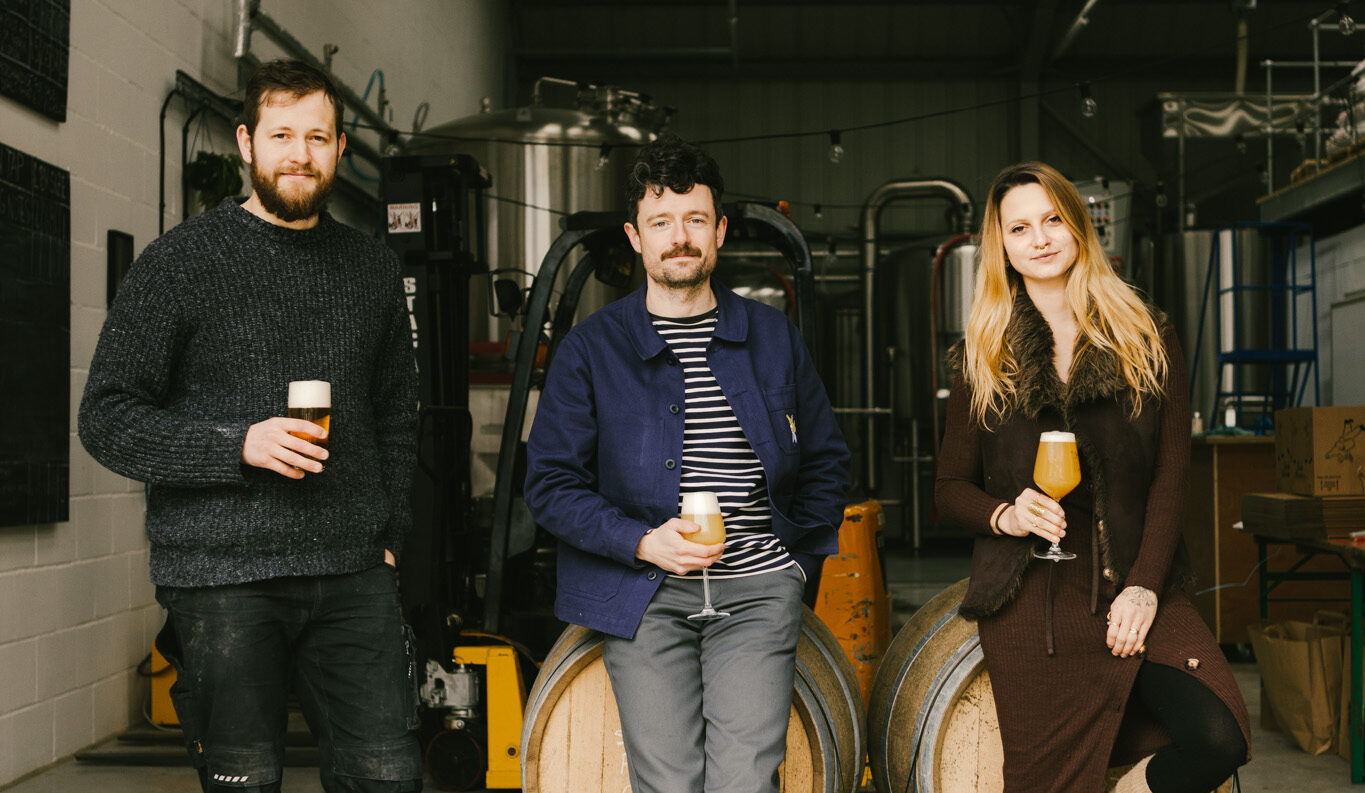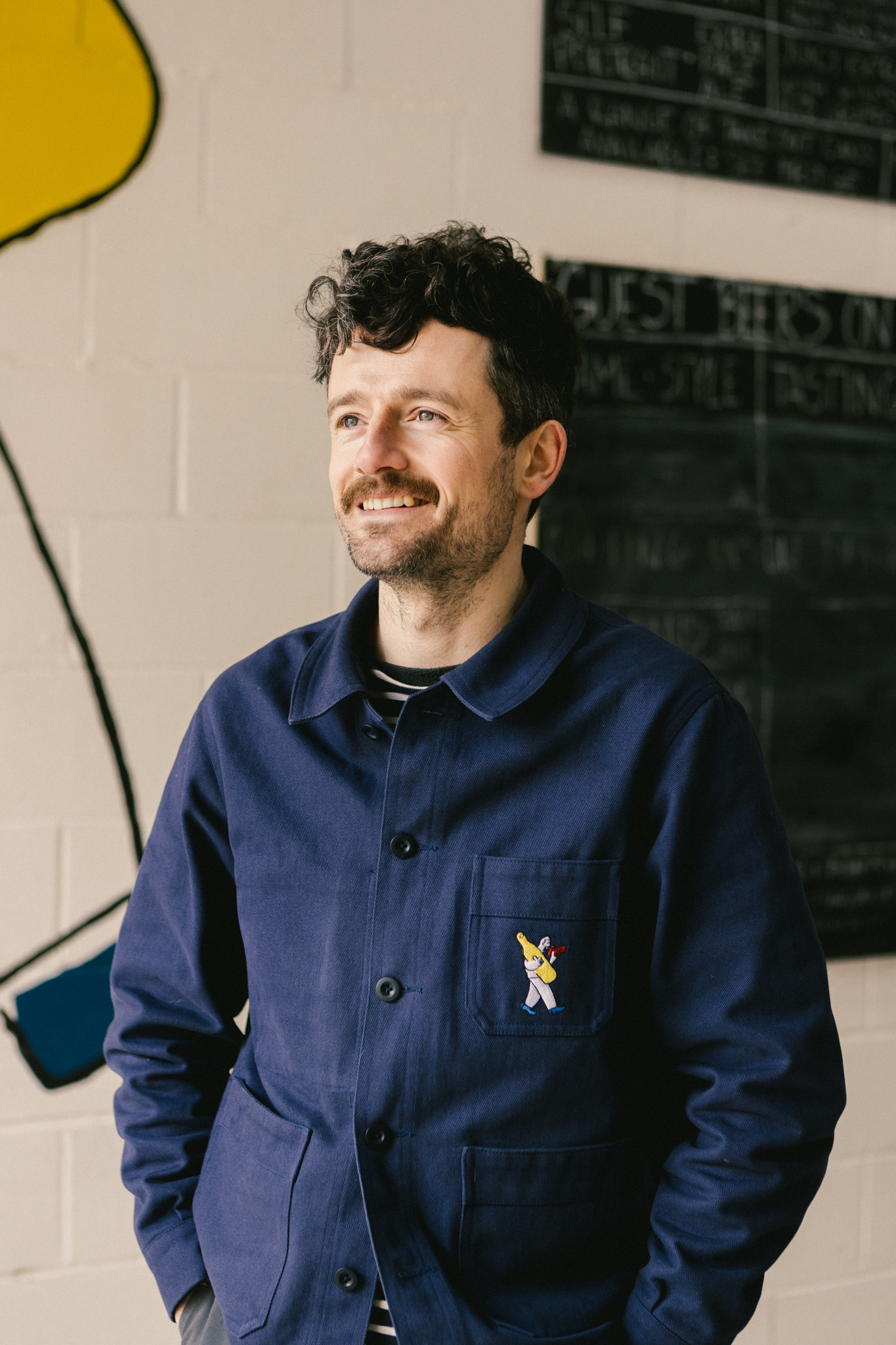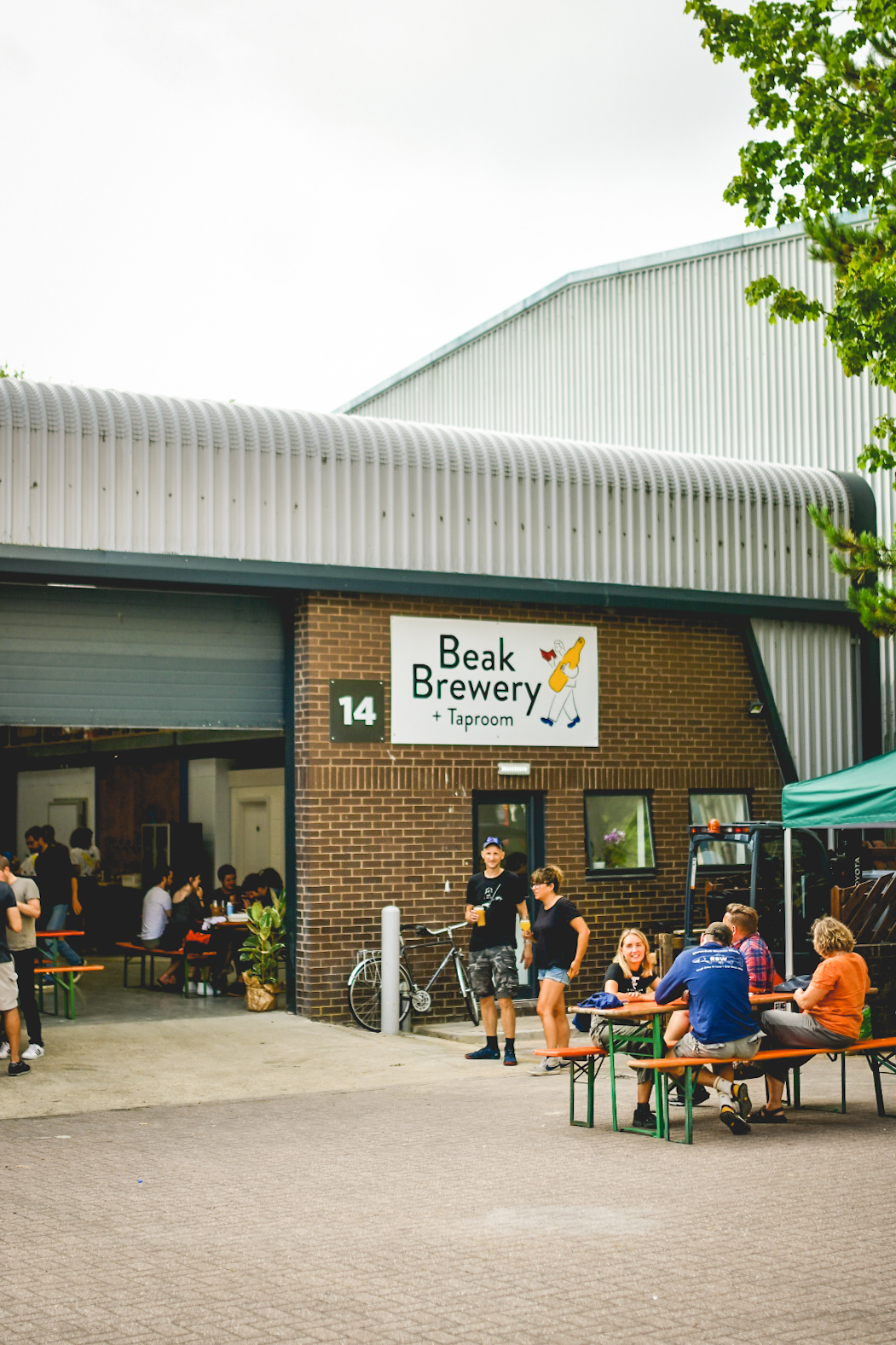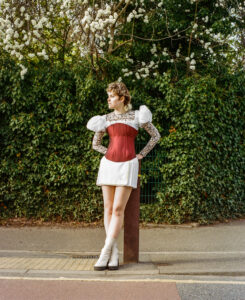
“I was doing freelance work up until the day I started the brewery” Image: Alex Catt
Eloise Feilden chats to food writer Daniel Tapper about his switch from journalist to brewer.
Opening his own brewery was food writer Daniel Tapper’s dream. The brewer began his journalistic career, writing for the likes of The Guardian, Waitrose Kitchen Magazine, and Delicious, but it was while freelancing full time that he began experimenting with home brewing. Eleven years later Tapper packed in his tape recorder and in August 2021 opened The Beak Brewery on an industrial estate in Lewes, East Sussex.
Starting a few years ago, Tapper created a “nano-brewery” in his house in London, making small batches of about 100 litres at a time. “I spent basically a year or two just driving around in my old Polo, delivering my beer to restaurants,” he says.
Next came a phase of nomadic brewing; a term used for independent brewers who hire out established breweries for a couple of days at a time. Collaborations with Northern Monk and Beavertown came out of this period of growth, and helped raise The Beak’s profile. “That’s when the brewery started getting a bit better known,” says Tapper, “and I started getting invited to festivals and into quite a lot of bars.”
A year and a half into the process, Tapper secured investment for a place of his own. “I was doing freelance work up until the day I started the brewery. Literally, the day before I started full time here,” says Tapper, noting how much work had gone into juggling his two passions.

“The great thing about journalism is that if you’re freelance you can actually combine it with whatever your other passions are, and it’s quite flexible. If you can find a form of journalism that crosses over with whatever business you want to start then they can be really beneficial to each other.”
For many, the transition from journalism to brewing might seem daunting, but Tapper’s background in the industry has been key to his success. A former student of City’s Magazine MA, he considers his news writing skills to be his greatest tool – though having “quite a lot of contacts” in food and drinks journalism may have come in handy, too.
“It’s down to understanding what makes a good story,” he says. “I send out two newsletters a week, and almost 99 per cent of our sales come through that. The way that newsletter is written – the subject line you choose – is like writing a good standfirst, or a good headline. It’s what captures the imagination and attention of people that is really important.”
“They teach you in journalism ‘show don’t tell’; don’t just say it’s citrusy, what does citrusy actually mean? Is it about acidity? Is it about mouthfeel? What kind of citrus fruit is it? I think we’ve been able to differentiate ourselves from other breweries by not only focusing on making nice beer, but also on the way we present that to people.”
“Since the lockdown there’s been so much support locally for small businesses. It’s actually become a really important part of revenue”
Beyond his general training, Tapper’s expertise in food and drink journalism has been invaluable to his work as a brewer. He chalks it up to understanding flavours. “All of our beers are designed with food pairings in mind and our head brewer is also a really good chef. That’s another thing that differentiates us and something I’ve learned as a food journalist – how to pair different beers with different foods.”
On top of its 15 keg lines – which include signature IPAs Strangers and Parade – the brewery hosts a range of food vendors each weekend, with dishes specially chosen to compliment what’s on tap.
Before its opening in August, Tapper had signed the ten-year lease for the building just two weeks prior to Boris Johnson ‘s announcement of the first lockdown. After that, his business plan had to change overnight, and with every pub across the UK closed for the majority of the last year, local deliveries, and direct sales to bottle shops were the only alternative.

Despite lockdown restrictions, The Beak Brewery has gone from strength to strength, and remains one of the UK’s highest rated micro breweries on beer-rating social media app Untappd. During periods where restrictions have been lifted and pubs are opened up again, the taproom on site has seen almost 300 customers every Friday and Saturday night.
“The taproom has become more important to us,” Tapper explains. “Initially we thought we’ll open it as and when we feel and just have a few people, but since the lockdown there’s been so much support locally for small businesses. It’s actually become a really important part of revenue.
“Once you’ve tasted good beer there’s no going back”
“I think a brewery like ours probably would have struggled to exist 15 years ago. Now there’s a lot of support. Since the lockdown people are forced to stay in their local communities, but there have also been seismic changes in British food culture. If you think of bread, you have a bit of sourdough and think ‘Oh, this is what bread can taste like’. Once you have that, there’s no going back to a slice of Warburton’s, you know, even if it means spending a little more. And exactly the same thing happened with beer; once you’ve tasted good beer there’s no going back.”
Would Tapper ever consider revisiting journalism in the future? “I would really like to do a book at some point, which would be good as long as it was related to the brewing world.” For now, he’s got his hands full running the business.
Despite never planning to get into food writing, let alone running a brewery, Tapper is glad about where he has ended up, and is grateful for where his media training has taken him. “I wouldn’t change a thing from the past 10 years,” he says with confidence.
















